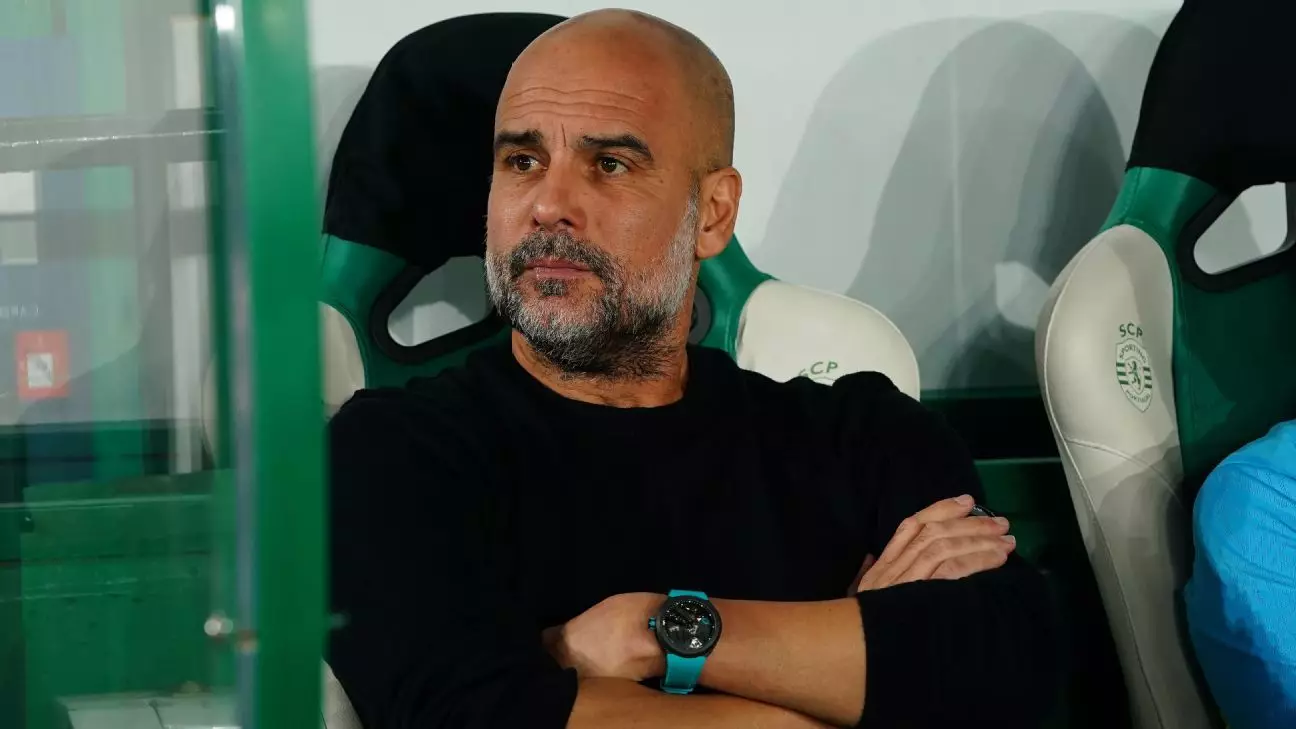The ongoing saga between Manchester City manager Pep Guardiola and England under-21 coach Lee Carsley has brought the spotlight to Jack Grealish, whose recent injury status has raised eyebrows. With Grealish sidelined since a Premier League victory over Wolves on October 20, the decision to include him in the England squad for upcoming matches against Greece and the Republic of Ireland has generated a contentious discussion in football circles. The discord centers around communication between the coaching staff and the handling of player fitness, revealing deeper tensions in international duty versus club requirements.
Guardiola has made it clear that Grealish’s availability for Manchester City is nonexistent, particularly as they prepare to face Brighton in the Premier League. His reaction to Carsley’s announcement—that Grealish had been training with City in the days prior—was both pointed and revealing. Guardiola noted with some disbelief that Grealish was only recently deemed fit enough to train with the team, having been mostly confined to gym work. His comments, emphasizing a lack of communication with Carsley, reflect a growing concern about player representation in terms of health and fitness.
The situation exposes a complex dilemma: while national teams often prioritize the readiness of players, club managers are forced to contend with the player’s immediate health and readiness for competitive play. This incident serves not only as a single case but reflects a larger issue in football where national and club duties collide.
Despite the injury concern, Grealish appears eager to join the England setup, indicating a willingness to represent his country. Guardiola’s remarks about their discussions suggest that, although he respects the England team’s decision, he advocates for player well-being above all. This philosophical divide isn’t merely a logistical quarrel; it speaks volumes about the contrasting priorities of club versus country, and showcases how a player’s commitment can be interpreted differently by various coaches.
Guardiola’s frustration also points to the urgency in his situation, as City is grappling with a troubling three-match losing streak—an uncommon dip for a team of their caliber. This predicament creates an environment where every player’s contribution is critical, making Grealish’s potential absence even more pressing.
Heading into the match against Brighton, the stakes are high for Manchester City. With Guardiola’s managerial record based on consistency and success, the prediction of potential further losses looms ominously. The ramifications of Grealish’s situation will undoubtedly influence team morale and strategy as they aim to turn their fortunes around. As conversations about player fitness and international commitments continue, this incident will serve as a case study for future interactions between national teams and clubs.
The clash over Jack Grealish serves to underscore significant tensions inherent in the footballing world, particularly concerning communication and player health. The fallout from this situation may well dictate not only City’s course for this season but also how clubs and international teams approach player fitness in the future. With reputations and careers on the line, the implications extend far beyond just one player.

